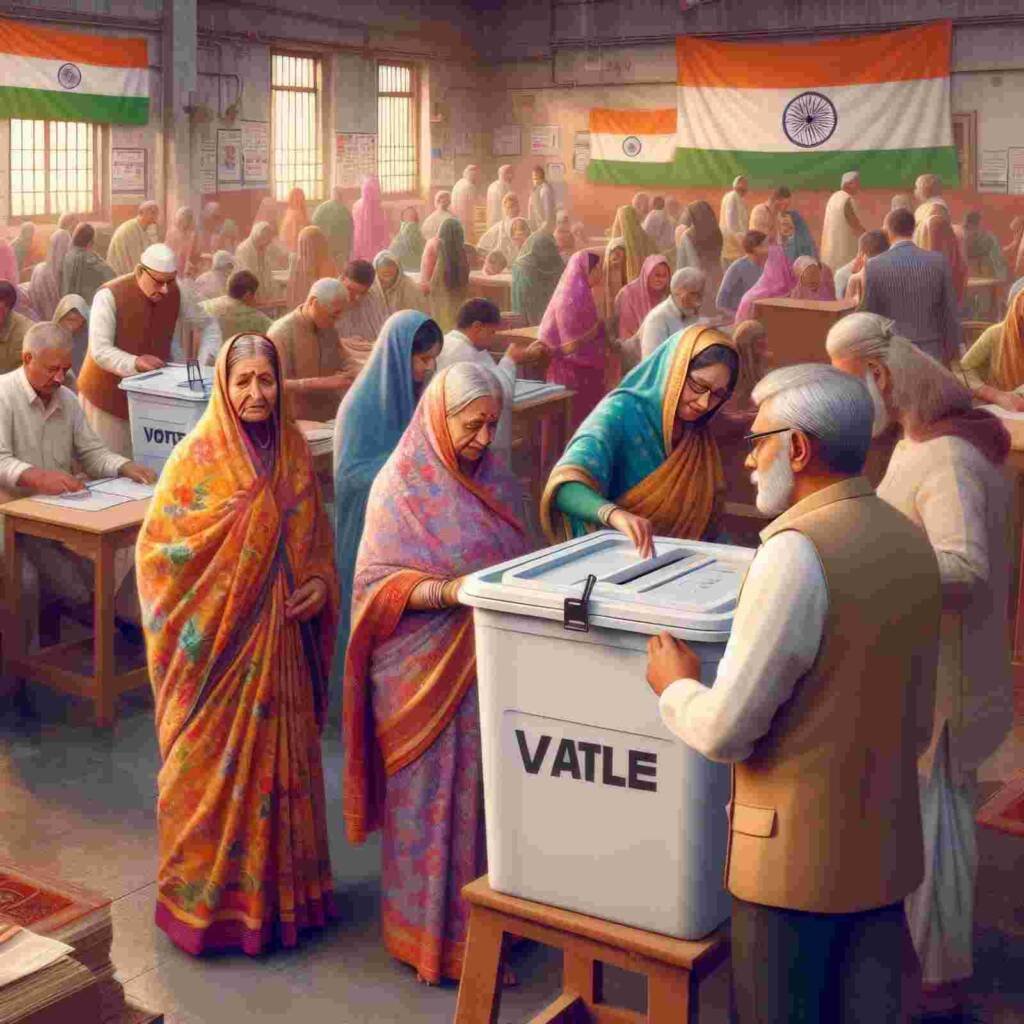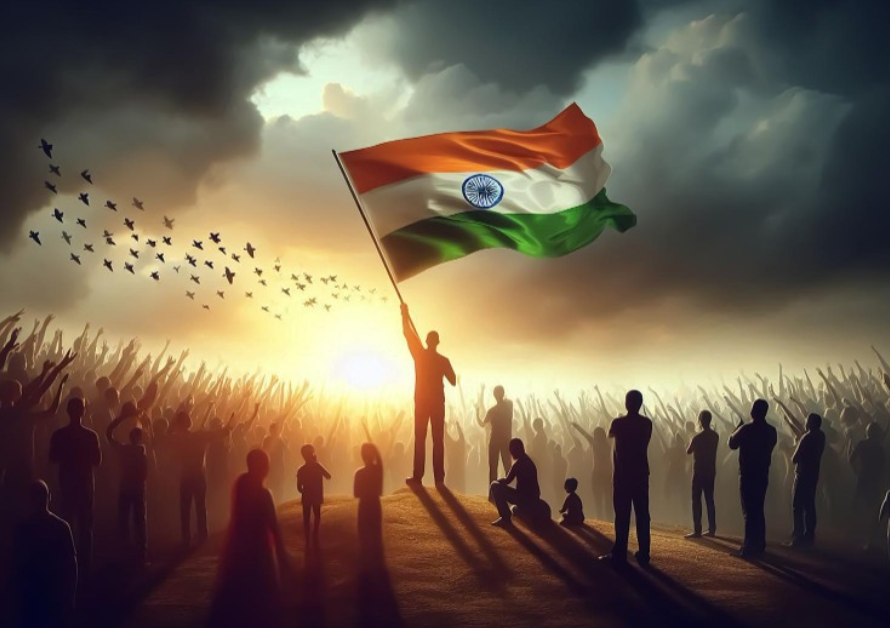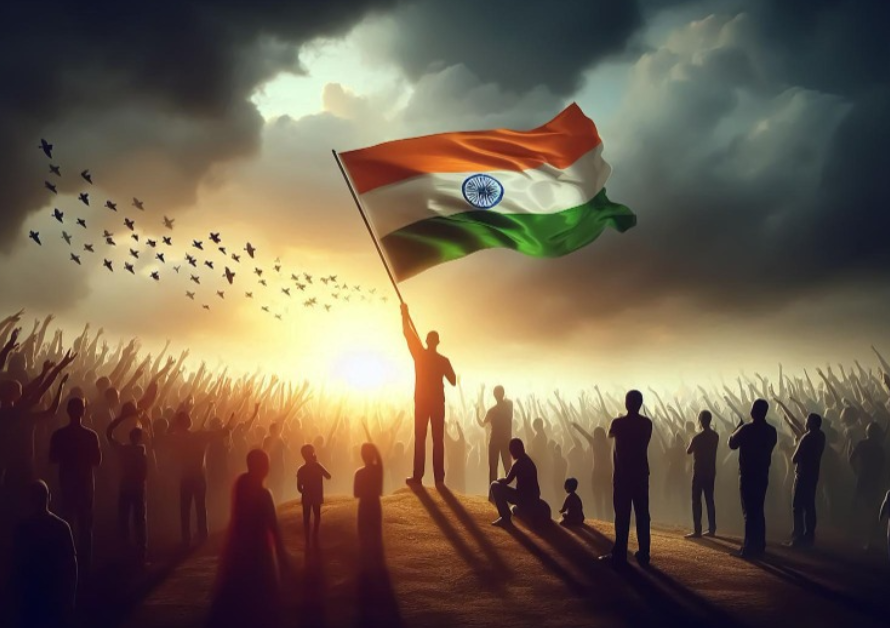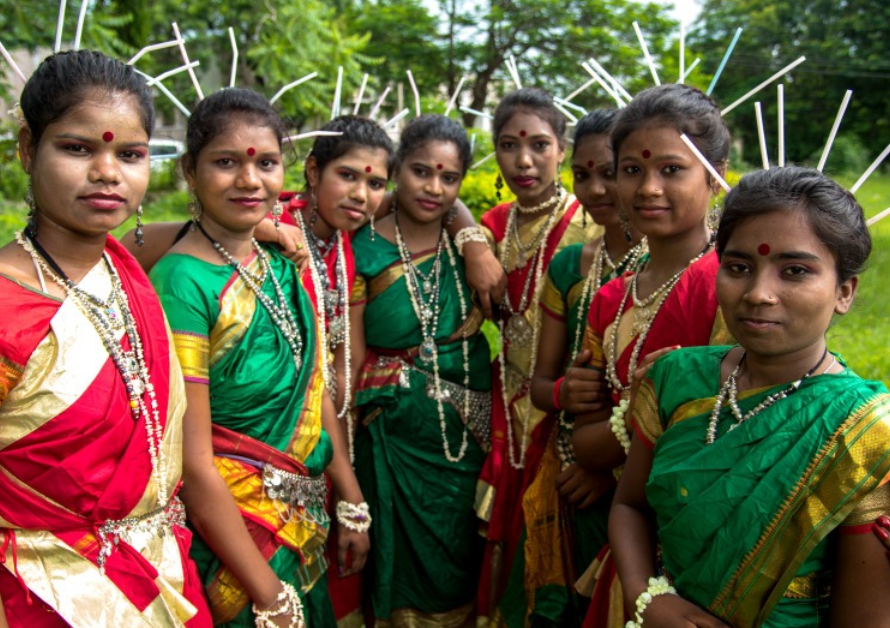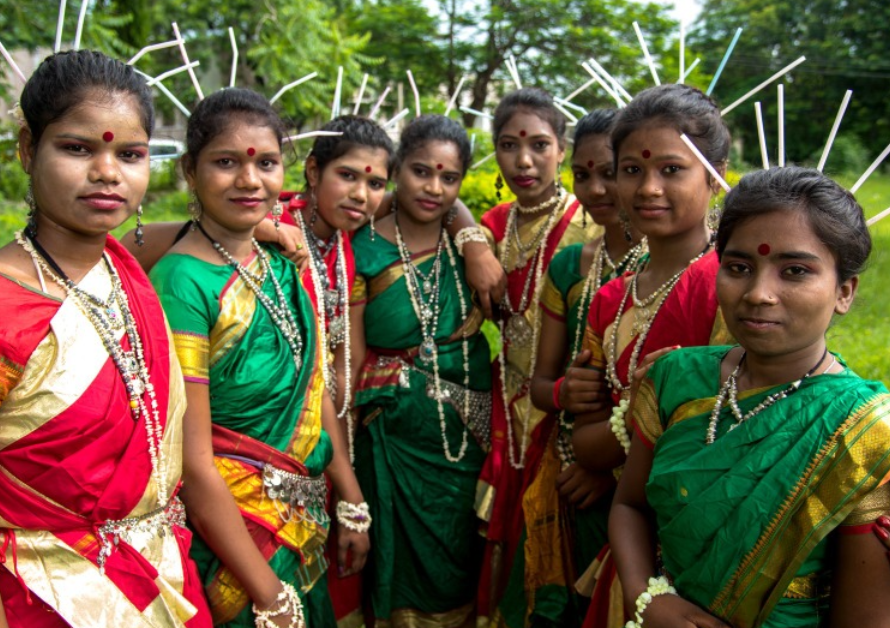TFor the BJP to recover from its recent setback and strengthen its position in future elections, several strategies could be employed. Here’s a comprehensive approach:
- Reconnect with Core Allies (RSS, VHP, and Others)
The BJP needs to re-establish strong ties with organizations like the RSS, VHP, and other pro-Hindu groups. These organizations provide grassroots support and have a vast network across the country, especially in rural areas. Engaging them early, listening to their concerns, and ensuring they feel part of the BJP’s mission will help mobilize their support. - Rebuild Trust with SC/ST, OBC, and Minority Communities
Opposition parties successfully created a narrative that the BJP would harm reservations and policies benefiting marginalized groups. The BJP should engage with SC/ST, OBC, and minority communities to dispel these fears. This includes:
Clear communication that reservation policies are secure.
Tailored outreach programs addressing the specific needs of these communities, focusing on education, employment, and welfare.
- Improve Communication and Public Relations
The opposition was able to amplify issues such as unemployment, inflation, and the neglect of farmers. The BJP should adopt a more robust communication strategy:
Counter opposition narratives quickly and decisively: Don’t allow issues like unemployment or inflation to go unchallenged. Highlight what the government is doing to address these problems.
Highlight past accomplishments: Emphasize what the BJP has achieved in comparison to 60 years of Congress rule. This includes infrastructure development, healthcare reforms, and digital transformation.
- Promote Achievements More Effectively
Many voters may not be aware of the BJP’s accomplishments in national security, economic growth, and global diplomacy. The party needs to:
Showcase its successes with solid data: For example, achievements in defense (surgical strikes, border security), foreign policy (India’s standing on the world stage), and economic reforms (GST, Direct Benefit Transfers).
Use social media, local media, and public gatherings to engage with a broader audience and educate them about the tangible benefits of BJP policies.
- Address Economic Concerns at the Grassroots Level
Economic concerns like unemployment, poverty, and inflation need direct and visible intervention. The BJP should:
Expand skill development programs: Encourage youth to learn vocational skills and start small businesses. Emphasize entrepreneurship over government jobs.
Focus on MSMEs: Strengthen the small and medium enterprises (SMEs), which can generate employment and reduce rural distress.
Offer targeted subsidies and financial aid programs to help farmers, small business owners, and underprivileged communities weather economic challenges.
- Social Transformation and Welfare Focus
BJP should focus on long-term social transformation by promoting welfare schemes that directly benefit the common man. This includes:
Improving healthcare access: Leverage Ayushman Bharat and other healthcare schemes to reach more people.
Expand affordable housing schemes: Ensure that more rural and urban families benefit from Pradhan Mantri Awas Yojana (PMAY).
Educational reforms: Continue to reform the education sector by promoting affordable, quality education in both rural and urban India.
- Develop a Stronger Campaign Narrative for 2024
For the upcoming elections, the BJP must have a clear and compelling message:
Unity and Strength: Emphasize that only a strong, united government can keep India secure and ensure continued development.
Vikas (Development) for All: Continue the development narrative but focus on inclusivity, ensuring that marginalized communities feel included in the party’s vision.
Focus on National Security: Reinforce the idea that BJP is the best choice to keep the country safe from internal and external threats.
Defend the Nation’s Sovereignty and Culture: Tap into the patriotic sentiment by linking the party’s goals with the protection of Indian culture and heritage.
- Community-Level Engagement and Local Leadership Empowerment
A top-down approach may not resonate well with all voters. The BJP should empower local leaders and encourage community-level engagement:
Strengthen local BJP leadership: Support local BJP leaders who have strong connections with their communities.
Encourage grassroots leaders to communicate the party’s message: Local leaders should communicate directly with voters about the BJP’s achievements and future plans.
- Combat Negative Propaganda
The opposition effectively used fear tactics in the last elections to suggest that the BJP would become authoritarian. To counter this:
Emphasize democracy and inclusivity: Make it clear that the BJP supports democratic institutions and the welfare of all citizens, regardless of caste, religion, or background.
Promote media literacy: Educate voters to recognize false narratives and propaganda spread by opposition parties.
- Focus on Inclusivity and Avoid Polarization
While Hindu nationalism is a core part of the BJP’s identity, it is essential to strike a balance between nationalism and inclusivity. BJP should:
Maintain its core nationalist identity but also project a message of unity that transcends religious and caste divisions.
Highlight successful social harmony programs and development projects that benefit people from all walks of life.
- Leverage Technology and Digital Infrastructure
Use India’s growing digital infrastructure to engage directly with voters:
Create more digital platforms to inform citizens about government initiatives and to listen to their feedback.
Develop apps and tools to promote government schemes, especially in rural areas, to reach more citizens directly.
- Encourage Higher Voter Turnout
One of the key factors that hurt the BJP was the relatively low turnout of its core voter base. BJP should:
Launch massive voter awareness campaigns to encourage higher turnout, especially among its supporters.
Target rural areas where the BJP typically has strong support but turnout might be lower.
Conclusion:
To recover, the BJP needs a mix of strategic communication, social transformation, economic inclusion, and grassroots engagement. Strengthening ties with its traditional allies, combating opposition narratives, and delivering on the ground on issues like unemployment and poverty will help the party regain its momentum and secure broader support in upcoming elections.he BJP’s lackluster performance in the recent Lok Sabha elections, despite major achievements like fostering the fastest-growing economy, asserting India’s influence on the global stage, economic reforms to tackle corruption, bolstering defense, combating terrorism, resolving the Kashmir issue, and more, can be attributed to several factors. Here are some key reasons:
- Overconfidence and Miscommunication with Allies
One of the senior BJP leaders publicly stated that the party would secure a majority without needing help from other organizations or allies. This statement created a sense of overconfidence and distanced important organizations like the RSS and VHP, which have historically worked at the grassroots level to mobilize support. Without their robust backing and organizational effort, the BJP’s reach was limited, particularly in rural and socially marginalized communities, which reflected in the election results. - Over-Emphasis on a Super-Majority
The slogan “Is baar 400 ke paar” (This time, over 400 seats) was overly ambitious and was cleverly exploited by the opposition. They used this statement to instill fear in SC/ST, BC/OBC, and minority communities by spreading the narrative that if Modi achieved such a dominant majority, he would become authoritarian, abolish reservations, and curb the rights and benefits these communities have enjoyed. This fear-mongering contributed to consolidating anti-BJP votes. - Failure to Counter Opposition’s Narrative Effectively
The opposition strategically focused on issues like unemployment, inflation, the neglect of minorities, and the plight of farmers, making loud, repetitive claims that resonated with many voters. While these accusations were not entirely grounded in fact, the BJP failed to respond with equal force or clarity. BJP’s communication strategy appeared weak, as they struggled to aggressively counter these charges or shift the focus to their accomplishments. The opposition, on the other hand, excelled in projecting a unified and relentless attack, which swayed public opinion. - Underplaying Achievements and Weak Messaging
The BJP did not project its success stories from the last 10 years effectively. There was insufficient emphasis on the tremendous progress made under Modi’s leadership compared to the state of the country when they took over. The party could have done a better job in not only defending itself against opposition allegations but also in highlighting the failures of previous governments, specifically the Congress, over the last 60 years. They needed to present solid facts and figures showing how they have delivered results that past governments couldn’t achieve in decades. This kind of comparative analysis was underutilized, and the opposition, in contrast, was highly effective in shaping the media narrative. - Focusing Heavily on National Security and Global Standing but Missing Grassroots Concerns
While BJP’s emphasis on national security, defense, economic growth, and India’s recognition as a global power was important, it did not fully address the concerns at the grassroots level that affect the everyday lives of people. Issues such as poverty, inflation, and unemployment were not tackled head-on in their electoral messaging.
In addition, there was insufficient emphasis on policies that directly improve the livelihoods of common people, such as:
Skill Development Programs: Encouraging people, especially the youth, to gain vocational skills that could enable them to start small businesses or entrepreneurship ventures rather than solely relying on government or private jobs.
Employment Generation: More focus on job creation through local industries and the MSME sector could have resonated well with those who felt left out of India’s economic boom.
A broader social transformation at the grassroots level, aimed at alleviating the hardships of the common man and bringing happiness to their lives, should be a key objective for BJP’s next term. By focusing on the basic needs and aspirations of people in villages and towns, BJP can create a stronger, more inclusive narrative for its governance.
- Failure to Capitalize on Nationalistic Sentiment
Despite being the party that represents Hindu nationalism, the BJP didn’t capitalize fully on its core support base. The opposition successfully diverted attention from national security concerns and cultural issues, which are typically BJP’s strong points, and shifted the narrative toward economic distress and social inequalities. A more aggressive stance on protecting Hindu interests, unity, and addressing real concerns like demographic changes in sensitive regions could have further solidified BJP’s support among its core voters.
Conclusion:
These points reflect a combination of missteps and missed opportunities that contributed to BJP’s less-than-expected performance. It’s crucial that BJP learns from these lessons to effectively communicate its achievements, counter opposition attacks, and address grassroots concerns in the upcoming elections.
I do not have any political interests, but as a concerned Hindu and a patriot, I deeply care about the welfare of Hindus, Hinduism, and our nation. Ensuring a strong and united leadership that can continue India’s progress is of utmost importance.
Jai Hind! Jai Bharat!
Saints, spiritual gurus, and preachers can play a crucial role in helping the BJP and the Hindu community in various ways. Their influence on their followers, and their deep connection to the cultural and spiritual values of the nation, makes them uniquely positioned to guide and inspire large segments of the population. Here’s how they can contribute:
- Promote Unity Among Hindus
Encourage unity across castes, communities, and sects: Saints can emphasize the importance of unity among Hindus, urging followers to rise above divisions based on caste, community, or language. By spreading messages of inclusiveness and collective strength, they can counter the divisions that opposition parties often exploit.
Organize inter-community dialogues: Saints can facilitate conversations between different Hindu communities, promoting harmony and a common cause for the protection of Hinduism and the nation. - Create Awareness About the Current Political Scenario
Educate followers on the political landscape: Many followers respect the opinions of saints, and spiritual leaders can explain the current challenges facing Hinduism, the nation, and the importance of supporting pro-Hindu policies.
Clarify misunderstandings: Saints can counter the misinformation spread by opposition parties about BJP’s policies on reservations, SC/ST/OBC welfare, and minority rights. By explaining that the BJP does not intend to harm these communities, they can reduce fear-mongering. - Mobilize Voter Turnout
Encourage higher voter participation: Saints can use their platforms to stress the importance of voting, especially urging Hindus to come out in large numbers and cast their vote in favor of parties that support the nation’s security, culture, and economic growth.
Mobilize the youth and rural voters: They can inspire the youth and rural population, who may not otherwise feel motivated to vote, to see their civic duty as a form of service to the nation. - Spread Messages of Patriotism and Nationalism
Promote patriotism as a spiritual duty: Saints can present the protection of India (Bharat Mata) and Hinduism as not just a political necessity, but as a spiritual and moral obligation. They can remind their followers that preserving the country’s unity and integrity is aligned with the principles of Sanatana Dharma.
Narrate historical examples: Drawing on stories from Hindu history, saints can inspire their followers with tales of past sacrifices made for the nation and religion, making a powerful connection between spiritual duty and patriotism. - Counter Negative Propaganda with Positive Narratives
Speak about the accomplishments of the BJP government: Saints can use their platform to highlight the positive work done by the BJP, such as economic reforms, national security improvements, and international recognition of India. This would counteract the opposition’s negative propaganda.
Promote peace and security: Saints can also promote the narrative that the current government is safeguarding India from internal and external threats, emphasizing the necessity of strong leadership in maintaining peace and stability. - Encourage Selfless Service (Seva) and Social Responsibility
Motivate people to engage in community service: By encouraging selfless service (seva), saints can inspire their followers to contribute to the nation by helping others, especially the poor, marginalized, and underprivileged.
Support skill development and employment initiatives: Saints can promote programs that encourage followers to learn new skills, start small businesses, and reduce dependence on government jobs. This aligns with the BJP’s vision of economic empowerment and entrepreneurship. - Advocate for Dharma and Morality in Politics
Preach the importance of morality in public life: Saints can call for a return to dharma (righteousness) in politics, urging both politicians and citizens to focus on ethical conduct and truth. This would reinforce the BJP’s image as a party that values ethics and national interest above all.
Discourage corruption and dishonesty: Through their teachings, they can remind people that personal gain should not come at the cost of the nation, thereby helping reduce corruption and dishonesty in society. - Build a Collective Spiritual and Cultural Movement
Unite spiritual leaders: Saints from different traditions can come together to form a united front, showing the world that Hinduism stands strong and united. Such a collective spiritual movement can greatly influence public sentiment and create a strong cultural resurgence.
Promote festivals and traditions: Encouraging the celebration of Hindu festivals, traditions, and rituals can strengthen cultural identity and provide a sense of unity among Hindus. - Lead Peaceful Protests and Social Movements
Advocate for Hindu rights and interests peacefully: Saints can lead peaceful protests and social movements to protect the interests of Hindus when necessary, ensuring that such movements remain non-violent and based on principles of truth and justice.
Promote spiritual resilience: Saints can remind their followers that resilience, dedication, and non-violence are key elements of Hindu spirituality and should guide their response to any political challenges. - Encourage Financial Support for Pro-Hindu Initiatives
Motivate the community to support Hindu causes financially: Saints can inspire wealthier followers to contribute to initiatives that support Hindu interests, such as educational programs, cultural institutions, and campaigns that promote Hinduism’s contributions to national identity.
Conclusion:
Saints and spiritual leaders can serve as moral guides, social influencers, and mobilizers in helping the BJP recover and further strengthen Hinduism’s place in Indian society. By promoting unity, countering opposition narratives, encouraging voter participation, and advocating for patriotism as a spiritual duty, they can make a profound impact on the future direction of the nation.

